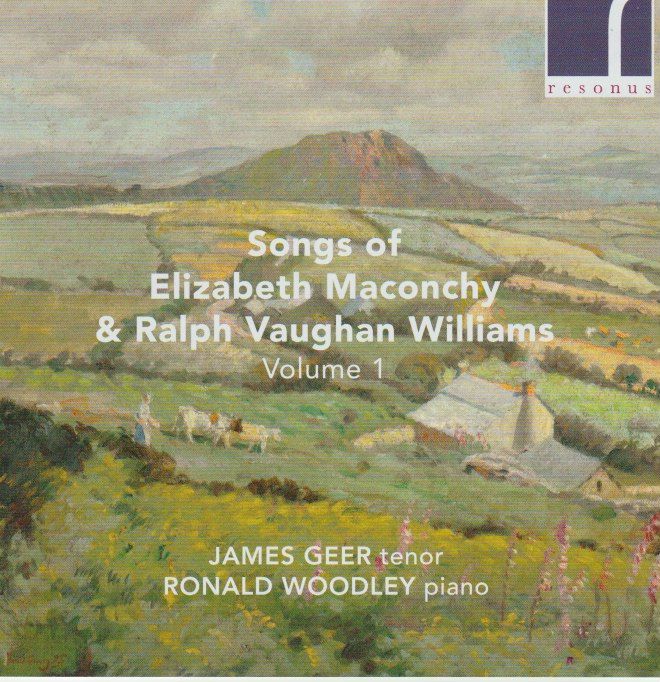Songs of Elizabeth Maconchy and Ralph Vaughan Williams
A superb disc, beautifully sung and recorded. Maconchy's Faustus is simply unforgettable

This is Volume One of what promises to be a most useful - and beutiful - series. We are also introduced (I am, at least) to the fine tenor of James Geer, joined by pianist Ronald Woodley. Both deliver with supreme sensitivity and the perfect sense of style.
Neatly, the booklet notes (by the present pianist) link Vaughan Williams and Elizabeth Maconchy (1907-94) right at the outset by quoting correspondence between Vaughan Williams and Edward J. Dent (then Professor at Cambridge) asking for advice around his 19 year-old student Elizabeth Maconchy, who wished to travel abroad to study.
Both qualities are perfectly in evdence in the first offering, certainly the most famous piece here: Ralph Vaughan Williams' Songs of Travel.
We've met this song-cycle before on Classical Explorer in a fabulous performance by Julian van Willaerts and James Baillieu here; both are fine performances, and context might determine choice (particularly those keen to experience Machonchy's world!). Geer's tenor feels exactly right for this set, plangent, with even a touch of the great Sir Peter Pears, at "In Dreams":
The song "Whither must I wander?" is heard in a performance of great beauty: Geer's higher register is a dream, and just listen to Woodley's harmonic awareness:
Almost all of the Maconchy songs here are unknown, and unheard since their first performances from manuscript. As the darkness of the piano opening to Love Stood at My Door introduces Maconchy's individual voice - and if there is a referand, it is Britten as opposed to Vaighan Williams. Her melodic line is clearly grateful to sing, the music internal and heartfelt, rising to a powerful, almost orchestral climax (this song would in fact work really well in orchestration). Love Stood at My Door sits in natural coupling (via the God Cupid) with The Bee Sting, so let's hear them next to each other:
Originating as a piano piece composed while in Prague in 1929, The Woodspurge became a song the next year, while the composer was on her honeymoon - with its rippling piano part, it sounds like it was a song all along, though, the line beautifully sustained by Geer:
This gives a taste of the beauty fof Maconchy's writing. The final song of the short set, Impetuous Heart, Be Still, is of the highest beauty:
Good to gear Vaughan Williams' Four Poems to Frederick Stove in a version for tenor. The settings elevate Stove's verse, nowehere more so than in the final "The Water Mll," a sort of Vaughan Williams answer to Schöne Müllerin, and heard here in a performance of beautiful freshness:
The most impressive piece on the album is Maconchy's setting of an adapted text from Christopher Marlowe in Faustus. This is a dramatic scena rather than a song, and dates from 1971. The music is more atonal, more angular, than anything else on the disc. It's quite an (infernal) ride:
A superb disc, beautifully sung and recorded. Maconchy's Faustus is simply unforgettable.
RVW and Maconchy Songs